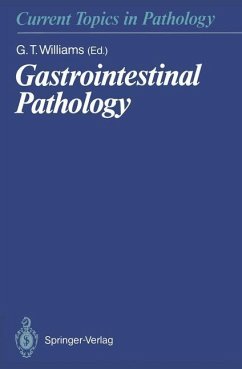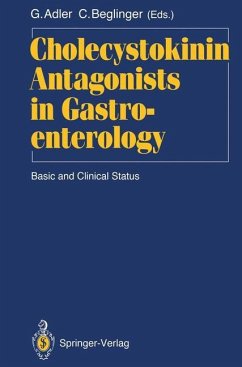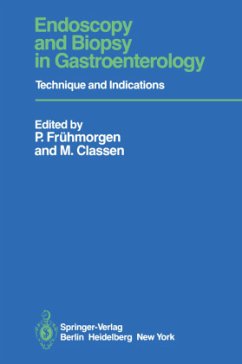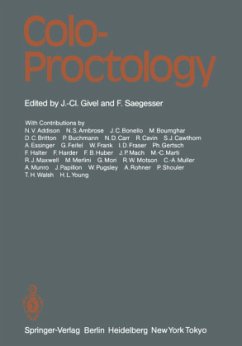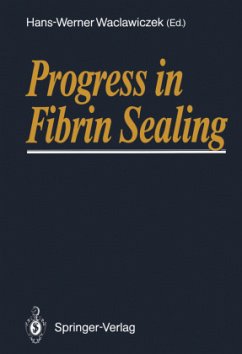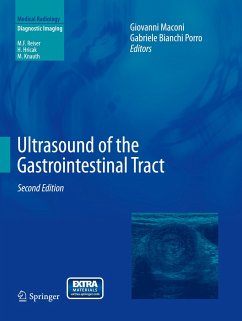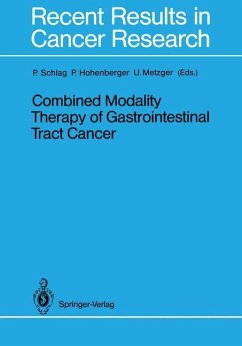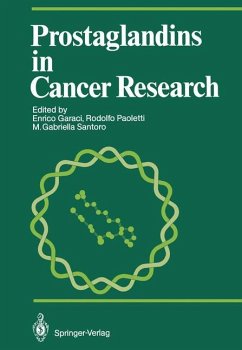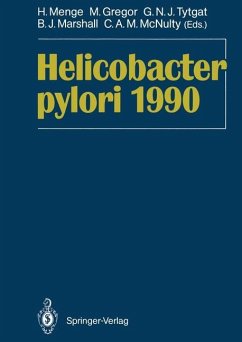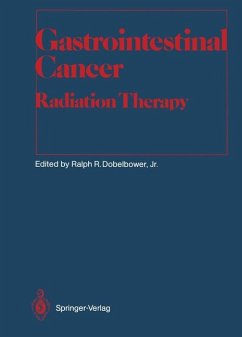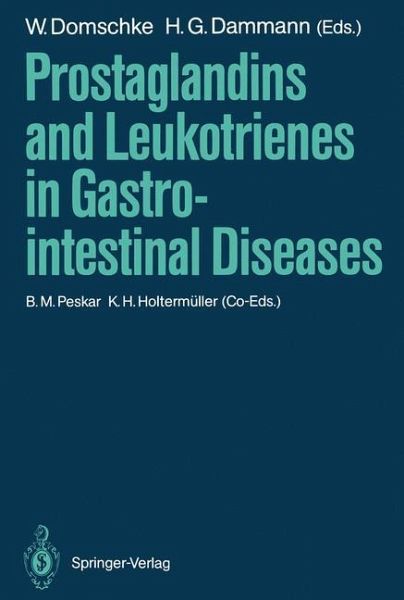
Prostaglandins and Leukotrienes in Gastrointestinal Diseases

PAYBACK Punkte
39 °P sammeln!
In OCtober 1986, recognized authorities from a variety of disciplines met in Lisbon, Portugal, to review recent knowledge on eicosanoids - i. e., prostaglandins, throm boxane A , and leukotrienes - and their role in gastrointestinal diseases. 2 Briefly, in the stomach endogenous as well as exogenous prostaglandins may mediate cytoprotective actions in that they stimulate gastric mucus production, bicar bonate secretion and cellular regeneration while providing adequate mucosal blood flow. In contrast, thromboxane A2 by vasoconstriction may act as an ulcerogenic substance. Diarrheal states may ...
In OCtober 1986, recognized authorities from a variety of disciplines met in Lisbon, Portugal, to review recent knowledge on eicosanoids - i. e., prostaglandins, throm boxane A , and leukotrienes - and their role in gastrointestinal diseases. 2 Briefly, in the stomach endogenous as well as exogenous prostaglandins may mediate cytoprotective actions in that they stimulate gastric mucus production, bicar bonate secretion and cellular regeneration while providing adequate mucosal blood flow. In contrast, thromboxane A2 by vasoconstriction may act as an ulcerogenic substance. Diarrheal states may be associated with prostaglandins of types E and F as they are capable to enhance intestinal water and electrolyte secretions. In chronic in flammatory bowel disease, mucosal synthesis of leukotrienes was found to be increased more markedly than that of prostaglandins suggesting that leukotrienes may have a major part in the pathogenesis of that disease. In this volume, which is an elaborated collection of the papers given on occasion of the above-mentioned symposium, the facts and problems associated with prostanoid substances are dealt with in four sections on 1. biochemistry, biology and pharmacology of eicosanoids, 2. physiologic and pathophysiologic aspects, 3. established therapeutic implications, and 4. treatment perspectives. We believe that the publication of these contributions by leading workers in the given fields provides a comprehensive and up-to-date appraisal of the role of eicosanoids in gastrointestinal diseases, and it is hoped that this volume will be of value to both basic scientists and practicing clinicians.



